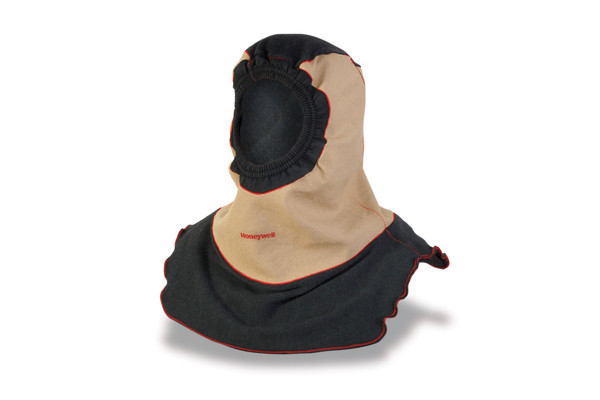Honeywell First Responder has developed a new hood to better protect firefighters...

Honeywell First Responder has developed a new hood to better protect firefighters from the long-term health threats of hazardous substances produced when today’s building materials burn.
Honeywell’s new Life Guard Hood features an innovative design and fabrics that provide better blocking protection against hazardous particulates and toxins compared to traditional firefighter hoods. It also features a lighter, roomier fit that integrates with a firefighter’s self-contained breathing apparatus (SCBA) and other turnout gear.
“Fighting fires is dangerous enough, but the added risk posed by hazardous substances in smoke means we need to do more to protect the men and women who put their lives on the line every day,” said Ken Schmidt, vice president and general manager of Honeywell First Responder. “Today the most permeable piece of gear firefighters wear is their hood. We worked with fire chiefs and firefighters to develop our new Life Guard Hood, which blocks the particulates and toxins firefighters encounter in both air and water to help safeguard their long-term health.”
There were more than 500,000 structure fires in the United States in 2015, and new building materials make those fires even more dangerous to firefighters’ long-term health. Modern synthetic products can release hazardous particulates, lethal gases and toxins when burned, and studies show that the skin and glands of the neck and face are especially prone to absorbing toxins. In addition, studies show that several types of cancer are occurring at higher rates among firefighters than the general population, according to the Firefighters Cancer Support Network in California, which provides education and support to first responders.
“When training first responders around the country, we receive many questions about how firefighters can protect themselves better from the toxins that are present in fire smoke,” said Jason Krusen, president of the Fire Smoke Coalition in Indiana, which provides training to firefighters and first responders on the long-term health consequences of fire smoke. “Hoods such as Life Guard go a long way towards protecting responders better from airborne toxicants and particulates, and reducing the long-term health risks.”
The particulate-blocking protection of the Honeywell Life Guard Hood is laboratory-proven and it’s certified by the National Fire Protection Association.
www.honeywellfirstresponder.com





